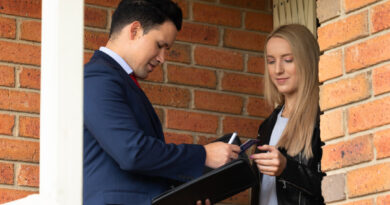The Australian Electoral Commission Reports One of the Highest Voter Turnouts Globally
Ten divisions in NSW and Victoria have historically ranked lowest in voting percentages, according to the AEC.
Despite global declines in voter turnout rates, Australians consistently show up to vote at consistent levels.
In a Parliamentary Senate Inquiry on electoral matters, Australian Electoral Commissioner Tom Rogers and Deputy Electoral Commissioner Jeff Pope highlighted Australia’s high voter turnout rates globally due to high enrolment rates and compulsory voting. In 2022, 89 percent of voters cast their votes.
“We are at the highest level of enrolment that we’ve ever been at as a nation since federation,” said Rogers, noting significant increases in Indigenous and youth enrolment.
However, as the number of voters increases, there may be individuals who do not vote, leading to a slight decrease in turnout rates.
“But overall, more people are voting than ever before.”
Meanwhile, the Australian Electoral Commission (AEC) needs to address misinformation, lack of trust, and language barriers ahead of the federal elections likely in 2025.
Divisions in NSW, Victoria Report Lowest Turnout
The AEC reported that 10 divisions in NSW and Victoria have historically ranked lowest in voting percentages.
“Most of them are in Western Sydney, and a couple of them are from Victoria. We’re trialing our programs on those seats,” Rogers told the committee.
The AEC identified three traditional factors contributing to higher levels of informality in voting: a higher number of candidates on the ballot paper, confusion when federal elections are held close to state elections with different voting systems, and language barriers affecting growing multicultural communities.
To address these issues, the AEC has translated election materials into approximately 35 languages, provided flip books in polling places, and employed multilingual temporary election workers. They have also conducted advertising campaigns in various languages to help voters better understand the voting process and minimize informal votes.
Boosting Digital Media Literacy
All representatives who appeared before the committee agreed that Australia faces global challenges affecting elections, including cyber threats, misinformation, and electoral integrity issues.
Educational and engagement efforts are more crucial than ever, according to the AEC. The commission advocates for a “whole-of-government” approach to help the public identify and reduce the spread of disinformation.
Research has shown that digital literacy is the most effective intervention against misinformation when widely adopted. Rogers stated, “Investing in a national digital literacy campaign is considered a significant step in combating misinformation and disinformation.”
Civic Literacy Certificate
Professor Mathieu O’Neil from Canberra University proposed the introduction of a civic literacy certificate as a vital addition to the Australian curriculum.
“By integrating fact-checking, source evaluation, and critical thinking into the curriculum, the certificate would ensure students can discern reliable information from misinformation, an essential skill in democratic participation,” he said.
Stakeholders also emphasized the need to upskill teachers to better understand civics in today’s evolving environment. Luke Sheehy, CEO at Universities Australia, highlighted the importance of providing educators with dedicated time and resources to update and modernize their knowledge.
Outreach Program for First Nations, Multicultural Communities
The AEC prioritizes equitable inclusion and accessibility for voters to ensure fair elections. Its Indigenous Electoral Participation Program works with Indigenous partners and engages directly with communities across Australia to encourage participation.
“In the last elections, we employed 82 local officers, 42 of whom were bilingual, covering 16 languages to support the participation of multicultural communities,” Rogers said.
Despite the demand, Jackie Morris, Deputy Clerk of the Department of Senate, stated that the department is unable to cater to many Australians.
She proposed empowering teachers with the confidence and resources needed to deliver educational material effectively. The focus should be on extending the department’s reach and supporting all Australians—whether they are young people in schools, new migrants, or older Australians.
Youth and Trust
The AEC informed the Senate Committee that public trust in conducting fair and accurate elections remains high, with approximately 80 to 90 percent of Australians expressing confidence in the AEC.
Rogers highlighted the AEC’s youth strategy aimed at engaging young people in the electoral process through social media. Sarah Moulds, Associate Professor at the University of South Australia, emphasized the importance of empowering young people to use their democratic rights to effect change in various spheres.





